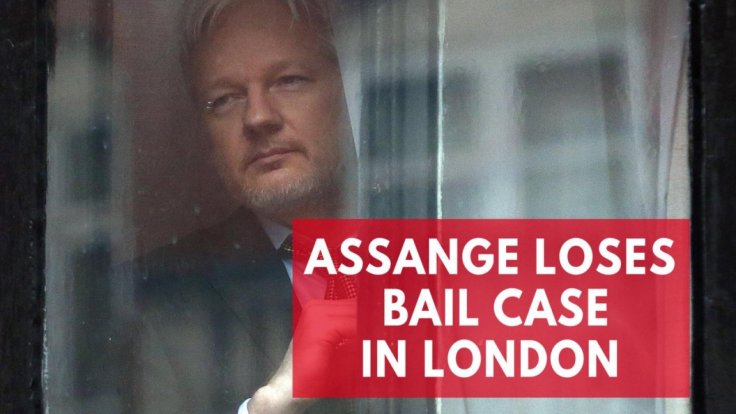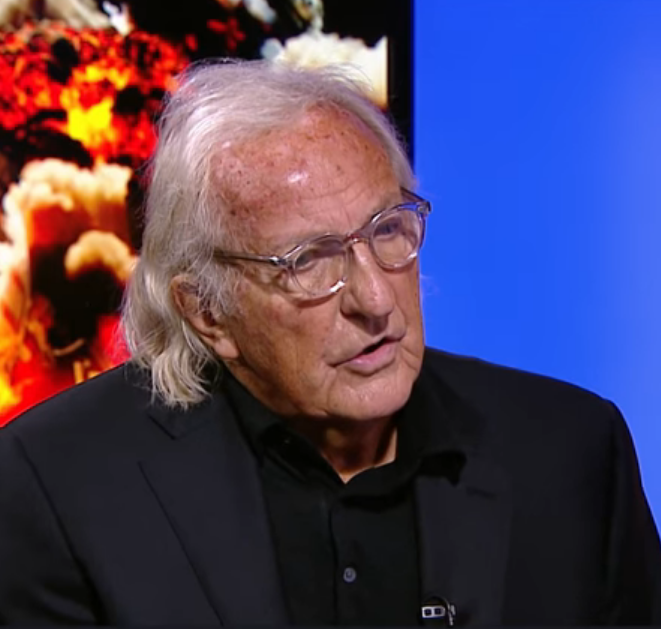
Fabled war correspondent John Pilger has once again brought to the fore the legality of WikiLeaks founder Julian Assange's detention in Britain. Pilger, a fierce critic of the US and UK foreign policy, lashed out at Britain's Guardian newspaper, saying it was carrying out a "campaign of unrelenting vindictiveness against Julian Assange."
Speaking to Russia Today, Pilger said Guardian's attack on Assange was on a level that he hasn't seen in his lifetime. He added that the Guardian exploited Assange first and took advantage of the work of WikiLeaks, before turning against him.
In a scathing attack Pilger said there are two kinds of media in the world -- the approved and the unapproved. Pilger, whose legendary war reportage in the 60s got him Britain's Journalist of the Year award twice, said Assange was targeted as he refused to be a 'member of the club'.

"Assange refused to be a member of the club.. he was so successful and he showed, I think, that the media is really, probably always has been, never more so than now, an appendage of established power. He shone a light on that and that was unforgivable," Pilger told RT.
Assange, whose bombshell revelations through the WikiLeaks in 2010 jolted the world, has been living in the Ecuadorian Embassy in London for the last six years.
The WikiLeaks saga unfolded after US military intelligence analyst Bradley Manning copied 250,000 US embassy cables and sent them to WikiLeaks. Assange and his associates took the help of professional journalists from the Guardian, NY Times and Der Spiegel in releasing the highly sensitive cables.
Assange took refuge in the Ecuador embassy after president Rafael Correa extended asylum to him following a Swedish arrest warrant against the whistleblower over rape charges. Assange feared he would be deported the US where he would face charges of publishing state secrets.
Assange exhausted his legal options in the UK in the meantime and with a change of power back in Ecuador his fortunes further deteriorated. He quit as WikiLeaks editor last week after hi internet connection at the Ecuador embassy was cut off.
Pilger's Beef With Guardian Over Assange
Pilger believes the Guardian was unfair in stopping its support for Assange. In February 2016 Guardian wrote an editorial on why it wasn't supporting Assange anymore, arguing that Assange was not anymore a victim of arbitrary detention.
"WikiLeaks made its name by exposing those who ignored the rule of law. Its editor-in-chief should recognise that applies to him as well as the US government," the editorial said.
"He is not being detained arbitrarily. Three-and-a-half years ago, he sought refuge in the Ecuadorian embassy in order to avoid extradition to Sweden to face allegations of sex offences. He had fought extradition through every court, and at each his case was rejected," the editorial added.
Meanwhile, Pilger, an award winning documentary maker, had his own falling out with the Guardian. The UK paper ended his run as a columnist in 2015, prompting the storied report to say that he was purged.
"... my written journalism is no longer welcome – probably it's last home was The Guardian, which three years ago got rid of people like me and others in pretty much a purge of those who were saying what The Guardian no longer says anymore," he told UK's Press Gazette in January.
In September, Guardian published a report in which it revealed Russia's alleged plans to whisk Assange away from the Ecuador embassy and help him escape to Russia.
The operation was scheduled for Christmas Eve in 2017 but was abandoned after it was deemed too risky, the paper said.









